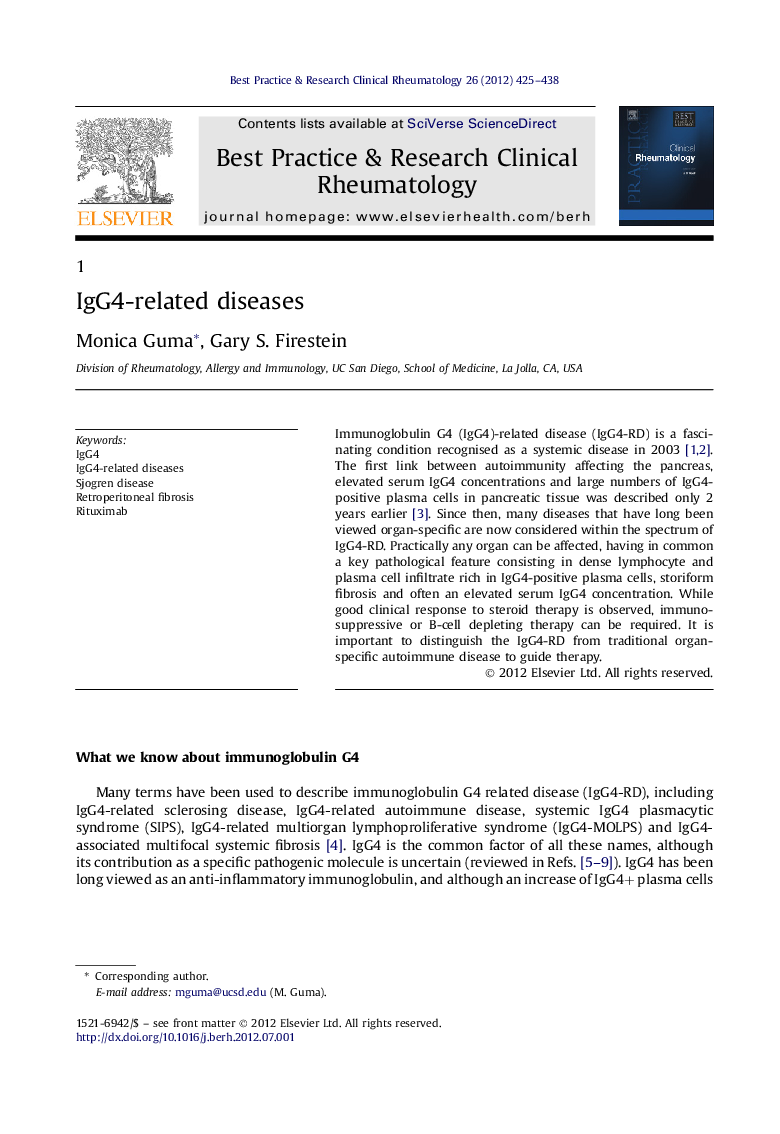| Article ID | Journal | Published Year | Pages | File Type |
|---|---|---|---|---|
| 3343013 | Best Practice & Research Clinical Rheumatology | 2012 | 14 Pages |
Immunoglobulin G4 (IgG4)-related disease (IgG4-RD) is a fascinating condition recognised as a systemic disease in 2003 *[1] and [2]. The first link between autoimmunity affecting the pancreas, elevated serum IgG4 concentrations and large numbers of IgG4-positive plasma cells in pancreatic tissue was described only 2 years earlier [3]. Since then, many diseases that have long been viewed organ-specific are now considered within the spectrum of IgG4-RD. Practically any organ can be affected, having in common a key pathological feature consisting in dense lymphocyte and plasma cell infiltrate rich in IgG4-positive plasma cells, storiform fibrosis and often an elevated serum IgG4 concentration. While good clinical response to steroid therapy is observed, immunosuppressive or B-cell depleting therapy can be required. It is important to distinguish the IgG4-RD from traditional organ-specific autoimmune disease to guide therapy.
